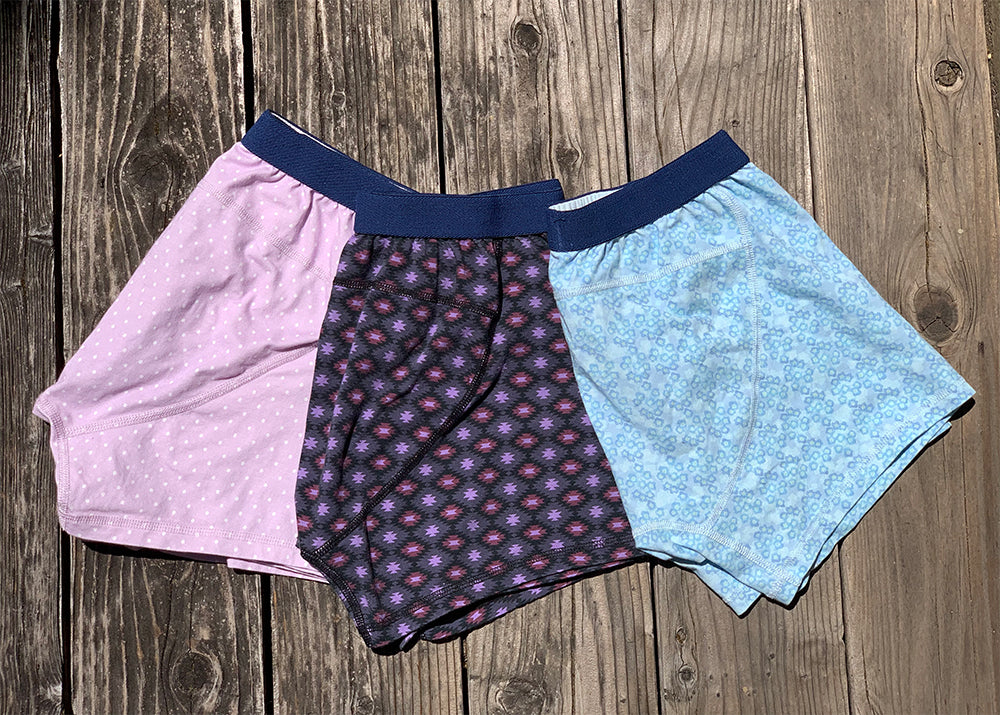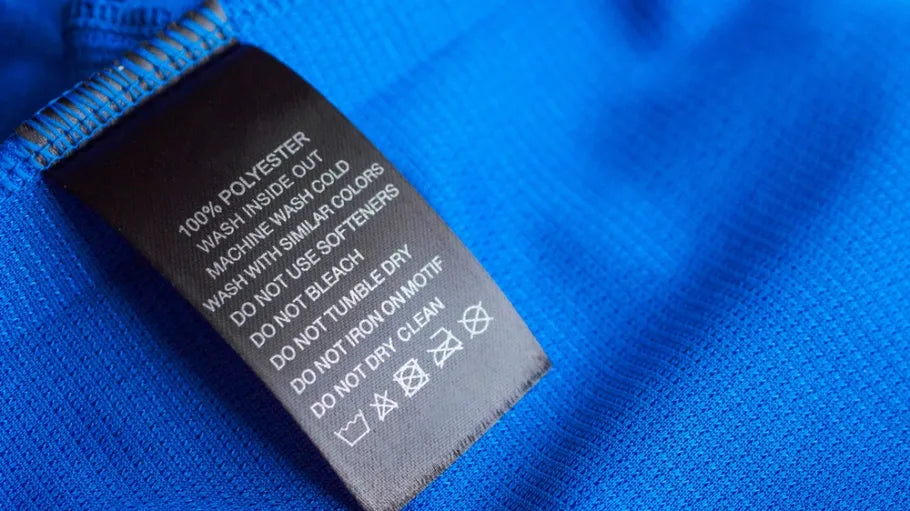Our clothing choices have a significant impact on our health and the environment, and underwear is no exception. We delve into the reasons why you should consider wearing cotton underwear over alternatives made from petrochemical-based materials. We explore the potential health risks associated with petrochemical-based fabrics, focusing on their harmful effects on the body and the environment. Cotton, as a natural and sustainable choice, emerges as a safer and more responsible option for both personal well-being and environmental protection.
Introduction
Underwear is one of the most intimate and essential items in our wardrobe. Beyond considerations of comfort and style, the choice of fabric for your underwear can have far-reaching consequences for your health and the environment. With the rise of synthetic materials made from petrochemicals in the fashion industry, understanding the potential risks associated with these fabrics becomes essential. In this paper, we will focus on the importance of choosing cotton underwear over petrochemical-based alternatives, and we will explore the harmful effects of petrochemical fabrics on both individuals and the planet.
The Rise of Petrochemical-Based Fabrics
Petrochemical-based fabrics, such as nylon, polyester, and polyurethane, have gained popularity in the fashion industry due to their affordability, versatility, and durability. However, these materials are derived from petroleum, a non-renewable resource, and their production processes come with a set of significant concerns that impact our health and the environment.
Health Risks of Petrochemical-Based Underwear
-
Skin Irritation and Allergies: Petrochemical-based fabrics are often less breathable than natural fibers like cotton. This lack of breathability can lead to moisture and heat buildup, making it more likely for wearers to experience skin irritation, rashes, or allergic reactions.
-
Disruption of the Body's Microclimate: Synthetic materials can disrupt the body's natural microclimate regulation. When your skin cannot breathe, it can result in discomfort and even contribute to more serious issues like yeast infections or skin dermatitis.
-
Cancer: Toxic chemicals can damage DNA and increase the risk of cancer.
-
Reproductive problems: Toxic chemicals can damage the reproductive system and reduce fertility. They can also cause miscarriage and birth defects.
-
Chemical Sensitivity: Petrochemical fabrics may be treated with a variety of chemicals, such as flame retardants and dyes, which can lead to chemical sensitivity reactions in some individuals.
Environmental Impact of Petrochemical-Based Fabrics
-
Resource Depletion: Petrochemical-based fabrics contribute to the depletion of non-renewable resources, as they are derived from oil and natural gas. This not only accelerates resource scarcity but also contributes to greenhouse gas emissions.
-
Energy-Intensive Production: The manufacturing of synthetic fabrics is energy-intensive and requires the use of fossil fuels, contributing to carbon emissions and global warming.
-
Microplastic Pollution: Synthetic fabrics shed microplastic particles into the environment, especially during washing. These microplastics enter water systems, harming marine life and potentially entering the human food chain.
-
Chemical Pollution: The production and dyeing of petrochemical-based fabrics often involve the use of harmful chemicals, leading to water pollution and posing health risks to workers in the textile industry.
The Benefits of Cotton Underwear
In contrast to petrochemical-based fabrics, cotton offers several advantages, making it a preferable choice for underwear:
-
Breathability: Cotton is highly breathable, allowing air to circulate freely, which helps regulate body temperature and reduce moisture buildup.
-
Hypoallergenic: Cotton is naturally hypoallergenic, making it less likely to cause skin irritation or allergies. It is a gentle and safe choice, particularly for those with sensitive skin.
-
Biodegradability: Cotton is a biodegradable material, meaning it decomposes naturally, reducing the burden on landfills and contributing to a more sustainable clothing life cycle.
-
Sustainable Farming: Organic cotton, in particular, is cultivated without harmful pesticides and synthetic fertilizers. It supports more eco-friendly and ethical farming practices and reduces the environmental impact of cotton production.
-
Comfort and Softness: Cotton is renowned for its softness and comfort, providing a pleasant wearing experience.
-
Ethical and Fair Trade: Many cotton brands prioritize fair labor practices, ensuring that workers are treated fairly and paid a living wage.
Making Informed Choices
In light of the health risks and environmental consequences associated with petrochemical-based fabrics used in underwear, it is important to consider making more sustainable and health-conscious choices. When it comes to underwear, cotton, especially organic cotton, emerges as the better alternative. Here are some practical steps you can take:
-
Prioritize Organic Cotton: Choose organic cotton underwear whenever possible. Organic cotton is produced without harmful pesticides or synthetic fertilizers, which makes it an eco-friendly and safe choice for your health.
-
Conduct Research: When shopping for underwear, take a moment to research the materials used in the products you're considering. Look for transparency regarding fabric composition and ethical practices.
-
Read Labels: Pay attention to labels and certifications. Look for certifications like GOTS (Global Organic Textile Standard) when choosing organic cotton products.
-
Support Sustainable Brands: Support brands that prioritize sustainability, ethical manufacturing, and transparency in their practices. Your choices can contribute to a more responsible and environmentally conscious fashion industry.
The choice of fabric for your underwear may seem insignificant, but it carries substantial consequences for both your health and the environment. Petrochemical-based fabrics, while popular, come with health risks and environmental concerns, from skin irritation and allergies to pollution and resource depletion. In contrast, cotton, especially organic cotton, emerges as a natural, sustainable, and health-conscious choice for underwear. By making informed choices and prioritizing cotton over petrochemical-based alternatives, we can reduce the harmful effects of our clothing choices and contribute to a more sustainable and healthier future for both individuals and the planet.
Opok is a men's organic underwear and organic t-shirt company that uses GOTS certified materials, dyes, and manufacturing.




Leave a comment
This site is protected by hCaptcha and the hCaptcha Privacy Policy and Terms of Service apply.